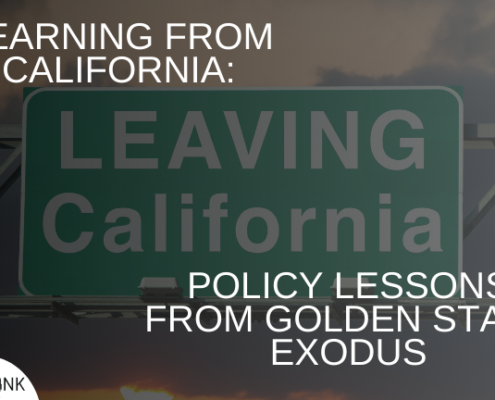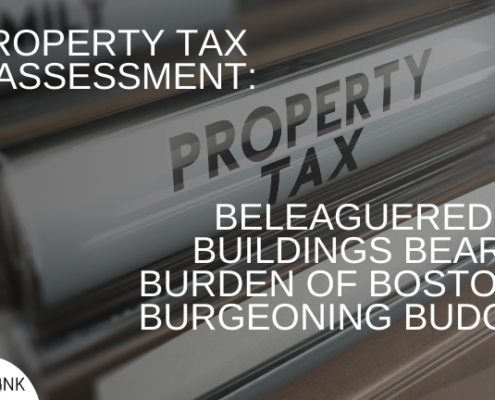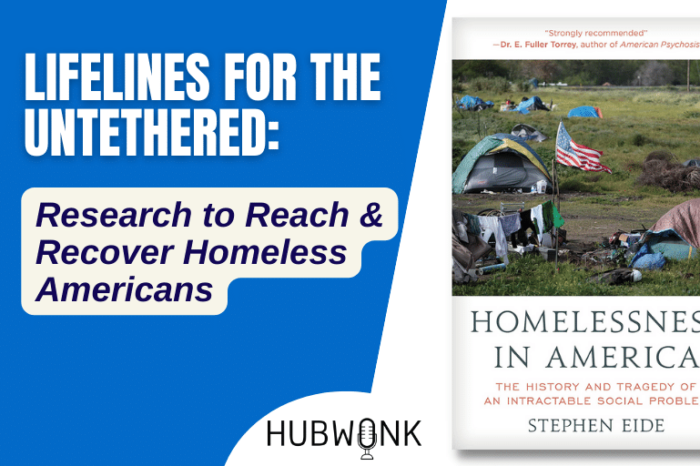Lifelines for the Untethered: Research to Reach and Recover Homeless Americans
/in Economic Opportunity, Featured, Podcast Hubwonk /by Editorial Staff
This week on Hubwonk, host Joe Selvaggi talks with Stephen Eide, Senior Fellow at the Manhattan Institute about his newly released book, Homelessness in America: The History and Tragedy of an Intractable Social Problem, in which he asserts that a better understanding of the many challenges facing each homeless individual can lead to a tailored and more durable policy solution to this enduring societal problem.
Guest
 Stephen Eide is a senior fellow at the Manhattan Institute and contributing editor of City Journal. He researches social policy questions such as homelessness and mental illness. Eide has written for many publications, including National Review, the New York Daily News, New York Post, New York Times, Politico, the Wall Street Journal. He was previously a senior research associate at the Worcester Regional Research Bureau. Eide holds a B.A. from St. John’s College in Santa Fe, New Mexico, and a Ph.D. in political philosophy from Boston College.
Stephen Eide is a senior fellow at the Manhattan Institute and contributing editor of City Journal. He researches social policy questions such as homelessness and mental illness. Eide has written for many publications, including National Review, the New York Daily News, New York Post, New York Times, Politico, the Wall Street Journal. He was previously a senior research associate at the Worcester Regional Research Bureau. Eide holds a B.A. from St. John’s College in Santa Fe, New Mexico, and a Ph.D. in political philosophy from Boston College.
Get new episodes of Hubwonk in your inbox!
Read a Transcript of This Episode
Please excuse typos.
Joe Selvaggi:
This is Hubwonk. I’m Joe Selvaggi.
Joe Selvaggi:
Welcome to Hubwonk, a podcast of Pioneer Institute, a think tank in Boston. Homelessness in America is both difficult to understand and seemingly impossible to eliminate. Indeed. It is the blanket use of the term, homeless for all those without permanent housing that can both improperly generalize, the wide range of causes and profiles of homeless citizens and invite simple policy remedies that fail to address the underlying conditions that led to the vulnerability is the inability to meaningfully reduce the homelessness rate in the United States, a function of inadequate public attention and resources, or could the problem be a mismatch between the needs of homeless individuals and the bureaucracy that has evolved to address it? My guest today, Stephen Eide, Senior Fellow at the Manhattan Institute, contributing editor to its City Journal magazine and author of the recently released book, Homelessness in America, the History and Tragedy of an Intractable Social Problem.
Joe Selvaggi:
Stephen will share with us the themes of his book, including the history of the public perception of homelessness, how our well-intentioned abundantly applied policy interventions have led to disappointing outcomes and how a shift away from seeing the problem as a lack of housing toward a view that aspires to help each homeless person connect to his or her family community and job opportunities can offer a more durable welfare solution. We’ll also discuss the unique challenges of housing presented by high cost of living cities like Boston and make suggestions for our new mayoral administration for serving our most vulnerable citizens. When I return, I’ll be joined by author Stephen Eide. I okay, we’re back. This is Hubwonk, I’m Joe Selvaggi, and I’m pleased to be joined by senior fellow at the Manhattan Institute, author of the recently released book, Homelessness in America. Stephen, welcome to Hubwonk.
Stephen Eide:
Thanks so much for having me, Joe,
Joe Selvaggi:
I just finished reading your book. It was quite a eye opening experience. It’s very dense, very well researched. And I, I think I learned a lot for our listeners. I think the concept, particularly our urban listeners interact with the homeless perhaps frequently. But many of our listeners may have a family member for whom homelessness may be a risk. So your book dives deeply into the, the history, the diagnosis, the public policy efforts to address homelessness. But of course your subtitle is the history and tragedy of an intractable social problem. So that gives our listeners some sense of your humility when approaching this issue. So let’s start at the top. Let’s unpack where your book begins with the history of how we have historically looked at people who don’t have a home.
Stephen Eide:
Yes, well, when I first started researching this issue, one thing that struck me and then still strikes me, is this the funniest of this term homelessness, because you know, it wasn’t always in popular use. There were other terms that were used in the past to apply to, you know, very poor mostly single men who didn’t have a defined place in a family or community. So they were kind of placeless men. They were called hobos, TRAs bums. Many of these terms strike us as, you know, politically incorrect. We don’t use them anymore, but their usage also reflected I think, a different understanding of the problem that people were dealing with. And, and that one way to think about that, none of the terms that people used to describe, essentially the pre-modern homeless population said anything about those guys, home housing situation they, they were defined, there was a debate about what to do about them, but that debate was not as centrally focused on their housing situation as it is now.
Joe Selvaggi:
Yes, I remember again, you mentioned some names that are now wise, you say politically incorrect, but I remember sort of romanticized notions of these people who traveled on trains and things like that. You cite it in your book. I remember I have to admit, I don’t know if this is a bad admission. I remember it being in a grammar school class. We sang that Roger Miller on king of the road where you’re romanticizing someone who, you know, literally makes a living just sweeping floors and moving around. I remember being a, a bum for Halloween having torn clothes and some sit from the fireplace for my cheeks. So we wouldn’t do that anymore. We’ve shifted from sort of a romanticized notion in the past to more certainly sympathetic a view your book lays out phases of our perception of homeless whatever we’re gonna call it, homelessness now from what you described as sort of Vance to where we are now, where we seem to universally embrace this notion and this word of homelessness, take us through those phases.
Stephen Eide:
Yeah. I, as I see it, homelessness in America, you could break it down to three general historical eras. The first you’re talking about the post-Civil war era and what I call in the book, the romantic era. And that was the era as you described of the, the riding, the rails or riding the rods as they, the guys making their way all throughout the country in this, on the newly developed railroad network in America. That was where you had these, these classes of guys who called themselves hobos, tramps, bums. And it was romanticized because you had many you were, you, you mentioned the songs that were written about them. There are also many books. Poets went out trying to make sense of these guys in ways. It was, they were somewhat like the beats or the hippies or something. People were fascinated by this subculture with its own like lingo and music and so forth.
Stephen Eide:
That era persisted through I would say about the great depression around that time, the, the, the, the labor market gets settled. Maybe we as a country get more settled, you know, where you don’t have these masses of men riding around, moving with the rhythms of the seasonal agricultural economy, which was the case in the post civil war era, the, the, the working hobos, the TRAs who are moving around, they disappeared for the scene. And what is left is what you might say were the bums, the guys who were kind of retired hobos, disabled very high rate of alcoholism. And they lived in these neighborhoods that we called skid row neighborhoods. The most famous was perhaps the Bowery in New York city, but every major city had a neighborhood like this, including Boston, that skid row era of homelessness lasts from, you know, basically the post-war era or until around 1980. And that’s when the modern era kicks off. I don’t think we’re, we’re talking about the homelessness challenge. You’re not talking about major changes, at least in terms of the character of the problem between 1980 and where we are now.
Joe Selvaggi:
So the changes you describe in the book are both the perception and then the reality of who are these homeless people. And you almost describe them hand in glove, meaning as policy changes the response to those changes of policy means you’ve got different people joining the ranks of the homeless, or coming off the ranks of the homeless share for our listeners, how you see, let’s say from the earliest efforts to try to mitigate homelessness to more present days, how has this sort of give and take or cause and effect interacted to shape what we had in the past to what we have now?
Stephen Eide:
Well, yeah, I mean, I try to be somewhat sympathetic to the efforts of like policy reformers, you know, urban planners to do something about, you know, tough social problems. I mean, it’s kind of easy to throw those people under the bus, so they didn’t know what they were doing, but, you know, they saw these, you know, disgraceful conditions and they wanted to do something about them. They didn’t solve it, they created new problems, but, you know, in terms of the immediate post-war era, these skid road districts, you had a lot of cities who were worried about their futures. You know, you saw the, you know the suburbs are being developed, what is gonna happen to downtown’s. Some of those downtown districts were occupied by these skid row neighborhoods with the, the defined by their stock of SRO, very, very low quality housing. These hotels that could be rented out for like, you know, 20, 30 cents a night.
Stephen Eide:
And so people were like, you know, we need to do better here. We need to breathe new life into our cities. And so those neighborhoods were targeted by urban renewal. I guess the hope was that these guys would go away sometimes that maybe some way they’d be provided more for by new program, new programs. But the result was that we destroyed their neighborhoods and they started popping up in parks, train stations in ways that they never had before this op these, this tent city phenomenon really was not going on back in the 1960s. And the other one I’d mentioned because it’s, it comes up so often the homeless debate is the mental health, the mental illness aspect of it. You know, this is really a kind of dog that didn’t bark phenomena when you research the history of the homelessness, you know, like, you know, I really don’t see people talking a lot about schizophrenia when they’re talking about the TRAs and the bums, you know, now, you know, the man on the street that really defines the problem for him, you know, and I think that that probably just has a lot to do with a very large kind asylum population, the institutionalized population that we used to have in this country and that we decided we wanted to approach differently
Joe Selvaggi:
Indeed. So again, to bring it to sort of policy modern times, I, I personally became sort of politically aware and policy aware during the eighties during the time of Reagan proverbial welfare reform was really among the central cores of his his policy. I remember him saying tongue in cheek. We had a war on poverty and poverty one, I think that was a reference not to you know, scoffing at public policy or the, the great society from the sixties, but rather saying not only was much of our policy ineffective, it was counterproductive and that was followed through by Clinton the next next decade where genuine welfare reform happened, inevitably homelessness. I integrates with this welfare state, this welfare reform. Did we see dramatic changes from, let’s say the ambitious plans of the sixties to you know, end poverty and therefore end homelessness or have have these policy or these expenses, these programs continue to grow unabated through all the decades.
Stephen Eide:
Yeah, well, you know, I think when you research the issue, you find that government in America never really gets smaller. You know, if, if the economy grows and we have more money to spend on public prob programs, like we do it at least as a much as a share of the economy the welfare reform, because Reagan was a vocal welfare reformer, and he talked big talk about doing something about the great society he gets associated with the creation of modern homelessness in a way that I think is basically unfair because I think though the emergence of Mo modern homelessness coincided with the Reagan administration the causes for it were developing in like the sixties and seventies before he took office. We have seen during the welfare reform era, a reasonable per reasonably persistent support for, you know, sort of work requirements, sort of a work orientation to at least the cash assistance programs in America, more so than we did before welfare reform, but on other fronts on other parts of the vast American welfare state, we’ve actually seen movements and opposite directions, more towards sort of like open ended assistance programs where the philosophy is that to, to require any sobriety to require new behavioral expectations in exchange for the receipt of government benefits would be bad counterproductive, unscientific.
Stephen Eide:
That is a philosophy and very much a kind of an anti welfare reform philosophy that really took hold in these new homeless services systems that we developed in the nineties and beyond in that kind of a weird, very weird way, stand in contrast philosophically to other parts in the welfare of the welfare state, which in many ways still, I think, behave along the lines that the welfare reformers expected.
Joe Selvaggi:
I’m surprised I, I gotten this far into our conversation without first sort of framing the, the term homelessness, because I think you go to great lengths in your book and correct me if I’m wrong to say, you know, the fundamental problem with homelessness policy is we, we lump all homelessness into one big group without understanding there’s many reasons, many causes and therefore many, many solutions take us through where you see all the many stripes, if you will causes and, and, you know, let’s start perhaps with the the fringe CA you know, the people who are just on the edge of being integrated to side to those who are, as you say, in your subtitle, intractable people who, you know, we are the most difficult to, to to reach.
Stephen Eide:
Yeah. I mean, you know, one, the, the, maybe the simplest framing, although one that policy makers use the most of is that, yeah, the sort of down on their luck or episodic homelessness versus the chronic cases, it’s still very crude, but it’s maybe a way to begin to enter into this debate down on their luck cases. People who have a very short term experience with homelessness, you’re basically talking about the low income population. Maybe they happen to live in a city where housing is more expensive than others, but they’re relatively easy to help. The chronic cases are the people with some sort of disability often a serious mental illness. They’re more alienated from their social support networks from their friends and family. If they have any work history, it’s not, it’s not very recent and they’ve been homeless for a long time, so they’re much harder to help.
Stephen Eide:
And it’s also much more difficult to sort of calibrate what our expectations are for these people is the idea that we just give ’em housing shut ’em in private apartments. And, you know, we don’t wanna know what goes on behind closed doors, or are we really trying to restore them to mental stability restore them to sobriety. Maybe some of them might be capable of some sort of work to, of working and of reconnecting with friends and family. Those are the type of expectations. I think we’re more likely to have if we know someone like that, or someone in the verge of that in our own lives, but when that get translated into public policy the expectations have a way of lowering where it’s like, we just wanna get them housing and get them off the street. Hopefully they do better than that, but we’re not gonna really hold ourselves accountable to more outcomes beyond that.
Joe Selvaggi:
Yes. Again, you, you do lay out the range of reasons or types of homeless individuals from temporary to, to more more permanent. I think one of the great insights that goes throughout your book is that I, I I’m, I’m sure I’m misquoting you, but that you don’t become homeless when you run out of financial capital, but rather social capital, rather, you you’ve become disconnected from friends, family, community, job, all of these kinds of things. And in a sense you’re having no home is just among the many problems, really more symptom than the problem you lose your home after you’ve lost everything else say more for our listeners to what you mean by this sort of need not necessarily for a home for the homeless, but rather connection.
Stephen Eide:
Yeah. I mean, I think people with a very, with untreated serious mental illness or raging drug addiction are hard to live with. Even if they have families who are, will put up with them for a while, that’s a fragile situation. And it often snaps. But you know, when we talk about the freeing social fabric decline of social capital, it, it’s difficult to think about gov, what government can do, what policy can do. What can government do to restore about the single parent family? I mean, very well intentioned people have been trying for a long time, and I think we remain very flumox as to where, where to go with that. But I think one thing, you know, we can do is just to focus on trying to set up programs. And a lot, a lot of times you’re basically just talking about a job where people who have had a Rocky past can participate in these programs that provide a kind of independent Testament to their former friends and family that they’ve changed, that they’ve achieved a degree of stability and that maybe now would be a good time to start like repairing those bonds.
Stephen Eide:
Just to give somebody housing, you know, doesn’t tell them their former friends and family a lot about where they are now and whether or not they’re really more reliable than they used to be. But maybe, you know, on a community basis and limited circumstances, you know, it would be appropriate for government to raise the expectations a little bit and do more to try to repair these bonds, because it’s just, it’s just such a tragedy. You know, what we see in these people’s lives
Joe Selvaggi:
Indeed, by saying it’s a, a, a loss of connection rather than a loss of an actual home that flies in the face of what you describe in your book as be dominant orthodoxy within the homeless expertise expert community that is look before you do anything, get these folks homes and then everything else comes. Second. you, you described this and I think it’s generally described as a housing first. I don’t know if you call it a movement or a, a, a philosophy, but it effectively says, look, what they do is their business. Let’s get ’em in a home and whatever their situation is, it’s decidedly better because they’ve got a home your book challenges that notion in that it’s as, as likely to be counterproductive as productive, say more for our listeners. Why is housing first? Not necessarily the way to go.
Stephen Eide:
Well, I think there’s no question that we’re gonna have to provide subsidized housing for people. If you look at the scope of what places like California, New York do what the federal government does, we do a lot on that front. So what are we doing while we’re doing the housing thing and what do we hold ourselves accountable for? If you know, the the end of wisdom, the beginning, middle and end of wisdom and homelessness policy is how much money did you devote to subsidize housing this year, that that’s all you’re holding yourselves accountable for? Well, then, you know, we’re not gonna make as much progress on those social employment behavioral health fronts, you know, we can design housing programs in different ways. We can design housing programs that, that are set up for people who are interested in sobriety and who want to meet other people who can support them along that path.
Stephen Eide:
Or we can just say, we’re gonna give you an apartment. There’re gonna be some other people in that same building with you who are doing things that you know, are not so attractive, but best of luck to you and your own personal independent journey onto sobriety and housing first, you know, we need to realize that some PE that the road to recovery is gonna be Rocky for a lot of people, maybe not achievable for all people. So we have certain programs for those people. It shouldn’t be the guiding philosophy. It is such, just such a dominant philosophy, dominant narrative. You know, it’s very difficult to set up a program to get for home, to help homeless people for for what you could receive federal funding. And in many cases, any government funding, that’s not operating around these housing force housing first lines. And I think that’s a really bad problem that we need to change.
Joe Selvaggi:
So I’m gonna give you a chance. I’d like to do this with many of our guests experts who are, are sort of fighting the, sort of the, the dominant narrative, let’s assume you were a king for a day. And you could do what you wanted including some of the more provocative assertions in your book. Like getting rid of the homelessness industry expertise altogether, which I think is quite provocative for a book on homelessness. So start there say why is let’s say the, the the, the, why are the folks in charge now getting it wrong? And what would you do to reorder the world that would indeed address the actual problem at hand?
Stephen Eide:
Yeah, well, when you’re working on all these problems, poverty, you know, prisoner, reentry addiction failing schools, child welfare, it’s difficult to separate these problems completely. They have all have a tendency to blend into one another, but as much as possible, we set up these independent agencies to reckon with these problems in a somewhat independent fashion. So we have mental health agencies. We have, you know, workforce development programs. We have school departments. We, when we were thinking about how to respond to homelessness, we decided in addition to what all those guys already do, we want independent homeless services systems. So at, so HUD has separate programs just for homeless services in San Francisco, LA New York city, these enormous city departments by this point that are in focused on this problem, homelessness, which in a way I think, as we talked about is, is kind of weird and maybe is not as independent or as just as real, as distinct of a problem.
Stephen Eide:
So what we could do is just break up those homeless services systems, not get rid of the resources, not say, okay, good. You know, two bad guys, good luck, what we were trying to do. Didn’t work. You give those resources to those other agencies and say, I know you’ve got some people who are working on addiction employment, who you have, kids who need more housing stability, and do do better in schools. And those problems need residential resources to work on to, for people to work on those problems. Okay. So we’re gonna give you residential resources to use, to achieve your larger ends. I think that would be a better way to approach this kind of complex of problems that gets grouped under the umbrella term homelessness than the one we have now, where we have these homeless services systems. But, you know, in a way only, the only goal that it makes sense to hold them accountable for is more housing stability, but we all would want more than just housing stability from anybody who we’re close to in our lives. And so maybe it makes sense to kind of generalize that and generalize that in a policy way.
Joe Selvaggi:
I, I wanna dilate on that concept a little more and drill down and just make sure I understand what you’re recommending. So rather than have the department of homelessness, you have rather a homeless department within let’s say education, or we haven’t talked about policing a lot has been made in this sort of defund, the police movement that says we need more sort of social workers to address root causes of, of crime rather than, you know, put someone in handcuffs and, and lock ’em up. Rather we need, let’s say a, a specialist who can de deescalate let’s say mentally ill situation. So is, is that more what you’re talking about that each of the, the government programs or government agencies has its own element where it addresses the unique challenges of its homeless members?
Stephen Eide:
Basically. Yes, but they have their own larger goals that they need tools for. And this would be one of the tools that they use to pursue those larger goals. Yes.
Joe Selvaggi:
Now we’re getting close to our time end of our time together. I think you’re in New York City. I’m in Boston, I think you’re in Boston and yourself. Right. You went to school here, you got your PhD at BC.
Stephen Eide:
Yeah. I went to graduate school at Boston college. I lived in Boston, was pursuing that where I met my wife, all, all three kids. My all three of my kids were born in the Boston area. And I worked in Worcester, actually a small think tank in Worcester between graduate school and started at the Manhattan Institute in 2012. So I have a still great deal of fondness for the Boston area. Yes.
Joe Selvaggi:
Wonder. Wonderful. And, and I think our, our challenges are not quite what those are in those case studies. You mentioned in your books such as New York or Detroit or San Francisco or Los Angeles. But we do have our challenges. We have a new mayor. I, I don’t know if you’ve kept up on what’s going on here, a new mayor. And one of her the mayor who’s first challenges was to deal with what we have is a homeless encampment at the intersection of mass a and Melanie CA Boulevard. We call it mass and CA pretty big encampment it’s starting encroach, or it has encroached deeply into the south end, a very sort of up and coming wonderful neighborhood. And she’s done her best to sort of get rid of the the visible problem. But there’s a lot of controversy surrounding how one would do this now knowing what you know about homelessness and knowing what you know about Boston what would you recommend were she to be listening right now? What would you recommend? How would you tackle a situation like mass and CA
Stephen Eide:
Well, I do think you really have to hold the line on encampments. I mean, what we’ve learned from the California experience is that they, there’s this kind of a glomeration dynamic where encampments, if you, they will grow if you don’t cap them they will attract more people who would otherwise pursue alternatives. It’s a lot easier to be the 2001st person who’s living on the streets of a city than the first person doing that. And so you really need to hold the line on that, and it’s not, it’s not something that you’re gonna be able to house your way out of, because if it’s gonna be very difficult to just develop enough subsidized housing rapidly enough to move every person off the street who wants a unit like that, that’s something that California’s tried for everyone else, right? America’s the experiment of America.
Stephen Eide:
The American states are laboratories of democracy. So let some, let some other state be the Guinea pig, right, where California’s kind of being the Guinea pig for many other places and homelessness. And it’s really important to learn from their experience and what some California is, as we’ve seen in these recent votes have shown that they really would prefer a different approach than, than the status quo. Boston is different. The climate matters a lot, but encampment culture is something that you really cannot let spiral out of control because I don’t know any city who’s allowed it to go out of control and then brought it back under control.
Joe Selvaggi:
Yeah, it’s tough. You mentioned a climate, but we also suffer from high rents which is often associated with high homelessness. You mentioned in your response there that we can’t just sit, suddenly build a bunch of houses for these people to, to go into in your book. You touched on a, a favorite of this podcast, which is changing our, our zoning or housing standards to accommodate the reality that some people really actually need lower cost housing and, and the well intentioned, many of our, our zoning or regulation makes it impossible for places that these people could afford to exist go into, I think it’s a somewhat controversial assertion that we should, in a sense, relax our standards. So as to ensure that people who don’t have a lot of means still have comfortable housing,
Stephen Eide:
Well, if you think, I think again, I think the history is important. You know, when people are talking about homelessness as a housing problem, if it were not a housing problem, why is it so bad in place with high rents accept this argument? However, you need to bring in the history and talk about what are the changes in housing that led to the current crisis. And I think you’re more talking about changes in quality than changes in supply. I think that revisiting regulations that would allow for more supply could be helpful. And our maybe just logical thing to do for a number of reasons outside the homelessness context. I mean, if you’re living in a jurisdiction that’s hot where jobs are growing rapidly and housing units are not growing to keep pace with jobs. Yeah. It makes sense to take another look at supply, but if new housing coming is gonna, could be much more expensive than the homeless population is gonna be able to access it, how do you achieve that sort of filtering or trickle down effect?
Stephen Eide:
That’s gonna have an impact on homelessness. If that’s the question we’re talking about, and there, I think you need to be thinking about what are we doing on the quality front, because I mean, America’s very high quality housing standards improve dramatically. And by world historical, you matched up against Europe. Our housing standards are very high, but connected with that, the housing that’s at the very lowest rung that used to provide for people just doesn’t exist. And the connection between that and the 10 city phenomenon is I think, very tight. So if you wanna do something of a housing nature, that’s really gonna make an impact. I do think you ultimately do have to be looking at that aspect of it.
Joe Selvaggi:
Well, that’s a hard one to swallow. I’m, I’m gonna think about that longer sort of an anti gentrification movement that in a sense provides some, some some housing a stock for all needs of a, of an urban community. That that’s a difficult one, I think, to, to figure out. So we’re getting to our, the end of our time together. I wanna make sure our listeners who are interested in this topic and wanna go more deeply where can they find your book? Which is interesting. But I, I also share for our listeners, it’s got a hundred pages of footnote, so they can, they can read the book and then just keep reading for much longer. I think it’s wonderfully well researched. Tell us where we can go buy that book.
Stephen Eide:
Yeah, thanks. It’s on Amazon also directly from the publisher’s website and the publisher’s Roman and Littlefield.
Joe Selvaggi:
Wonderful. And where can we find your writing on a, on a daily basis
Stephen Eide:
Manhattan institute.org, and also City Journal should get a plug – City Journal, our in-house magazine where I’m a contributing editor.
Joe Selvaggi:
Wonderful. I read it. I enjoy the work at Manhattan Institute. You guys are, are doing a great job down there. Really appreciate it. So thank you very much, Stephen, for being on Hubwonk. I really appreciate your time, your work, your new book, and you know, you’ve been a great asset to the podcast. Thank you.
Stephen Eide:
Thanks a lot, Joe, for having me.
Joe Selvaggi:
This has been another episode of Hubwonk, a podcast of Pioneer Institute. If you enjoyed today’s show, there’s several ways to support Hubwonk, and Pioneer Institute, it would be easier for you and better for us. If you subscribe to Hubwonk on your iTunes podcaster, if you want to help make it easier for others to find Hubwonk. It’d be great. If you offer a five star rating or a favorable review, we’re always grateful. If you want to share Hubwonk with friends, if you have ideas or comments or suggestions for me for future episode topics, you’re welcome to email me at hubwonk @ pioneerinstitute.org. Please join me next week for a new episode of Hubwonk.
Recent Episodes

Learning From California: Policy Lessons From Golden State Exodus

New England Short Circuit: Distorted Incentives Drive Energy Prices Up and Reliability Down

Controlling Drug Prices: Costs and Benefits of Direct Negotiation with Big Pharma

Harris’ Tax Vision: Policy & Politics

Digital Privacy Divide: Can Law Enforcement Google Where You’ve Been?

Housing Bond Bill: Could Billions Better Bay State Cost of Living

Ruinous Red Tape: Epic Cost of Unchecked Federal Rule Making




